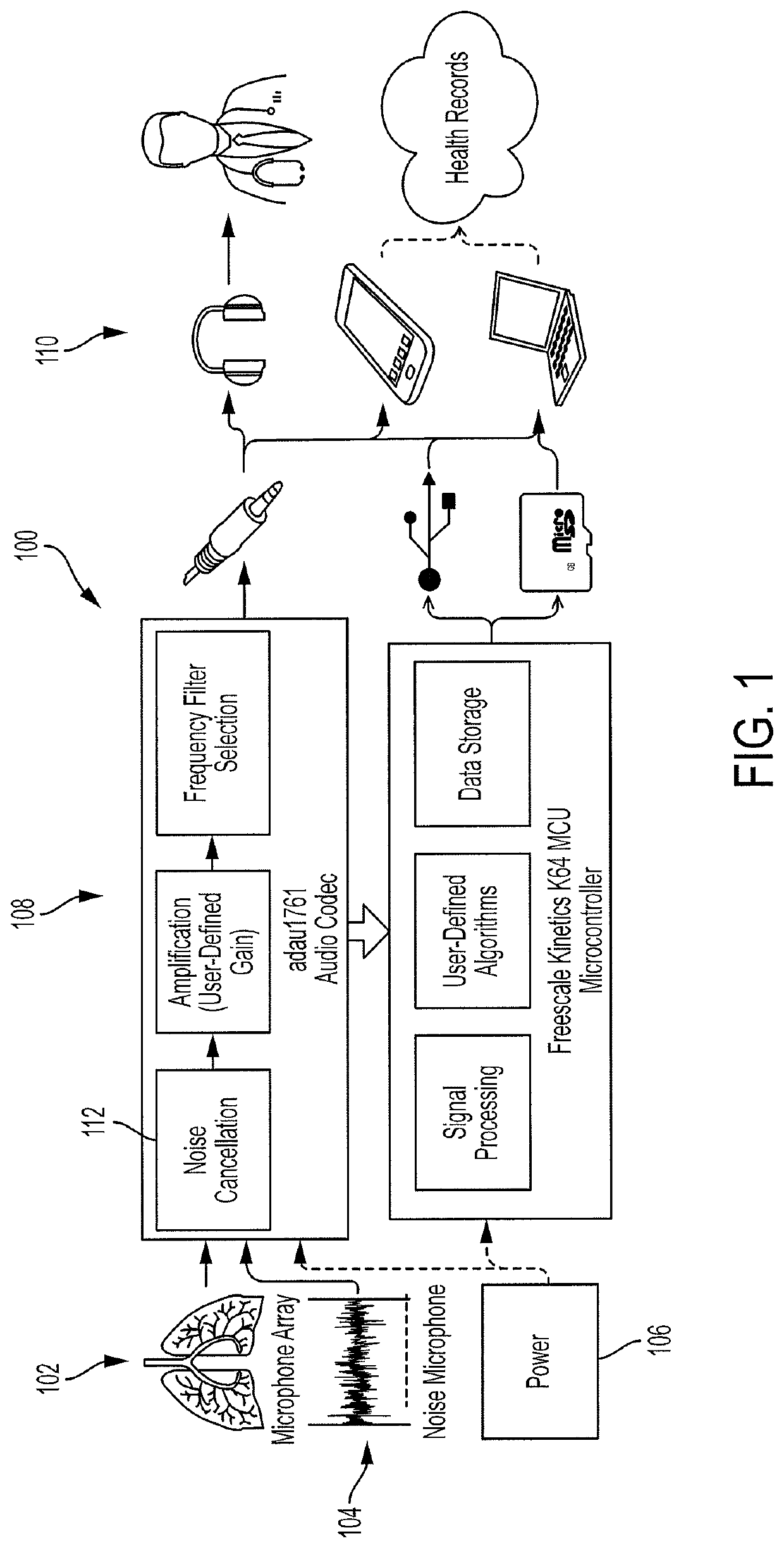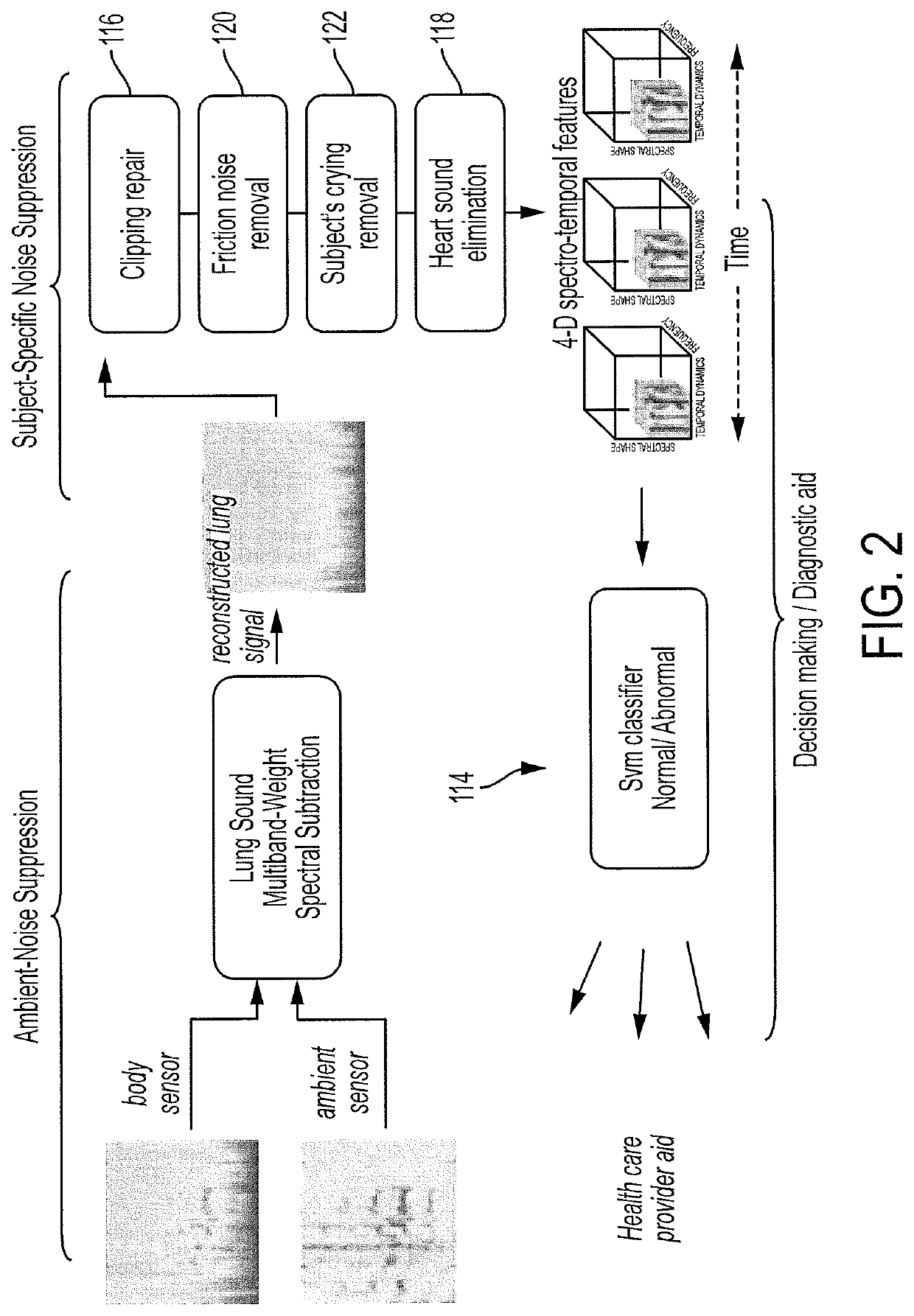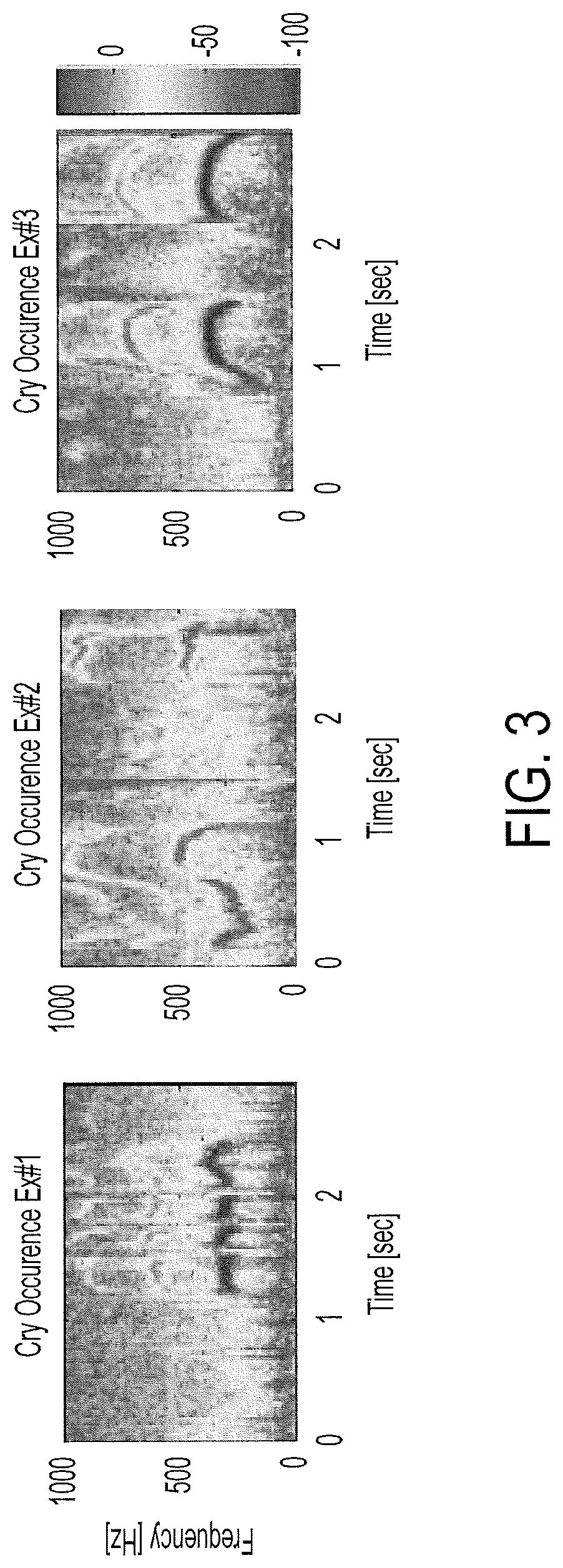Programmable electronic stethoscope devices, algorithms, systems, and methods
a stethoscope and electronic technology, applied in the field of electronic stethoscopes, can solve the problems of inefficiency, mainly available stethoscopes, and extensive training of health care providers for proper content interpretation, and achieve the effect of clean auscultation signal and free of distortion
- Summary
- Abstract
- Description
- Claims
- Application Information
AI Technical Summary
Benefits of technology
Problems solved by technology
Method used
Image
Examples
example hardware
Design
[0038]The digital hardware design according to an example includes two subsystems—an audio codec and a microprocessor (FIG. 1). The implemented audio codec is the Analog Devices ADAU1761, a low power, 96 kHz, 24-Bit audio codec. Using their SigmaDSP technology and SigmaStudio GUI interface, the added signal from the array of five microphones and the noise signal from the external microphone are used for the real-time noise-cancelation, frequency filtering, and acoustic stethoscope modeling through built-in functions such as band-pass filters and subtraction methods (see below). This codec has an analog output to a 3.5 mm headphone jack and a serial data output interfacing with the microprocessor.
[0039]The microprocessor fulfills the many of the other requirements for a ‘smart’ device implemented by the low-power Freescale Kinetis MK64 microcontroller unit with a USB interface. Currently, the microprocessor is used to control the audio codec and notification LEDs and store audi...
examples
[0057]Chest auscultation is a key clinical diagnostic tool for detection of respiratory pathologies. Skilled and highly-trained health care providers are needed to accurately interpret the sound information captured by the acoustic stethoscope and provide a clinical assessment. However, such assessment can be challenged by inter-observer variability during interpretation of chest sounds or by technical restrictions imposed by the stethoscope. In high resource areas, limitations can be addressed by extending the standard of care for pulmonary diseases to include chest radiography, oxygen saturation measurements or even ultrasound; when it comes to resource-poor settings, chest auscultation is typically the only available diagnostic tool, combining low cost and fast diagnosis. In such settings however, skilled physicians are usually unavailable, and environmental noise can highly impede the interpretation of acoustic information. Digital stethoscopes and computerized lung sound analys...
PUM
 Login to View More
Login to View More Abstract
Description
Claims
Application Information
 Login to View More
Login to View More - R&D
- Intellectual Property
- Life Sciences
- Materials
- Tech Scout
- Unparalleled Data Quality
- Higher Quality Content
- 60% Fewer Hallucinations
Browse by: Latest US Patents, China's latest patents, Technical Efficacy Thesaurus, Application Domain, Technology Topic, Popular Technical Reports.
© 2025 PatSnap. All rights reserved.Legal|Privacy policy|Modern Slavery Act Transparency Statement|Sitemap|About US| Contact US: help@patsnap.com



